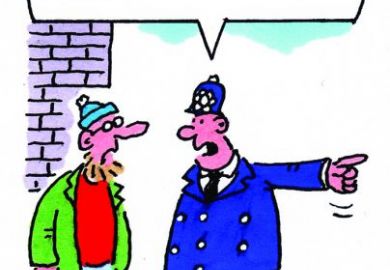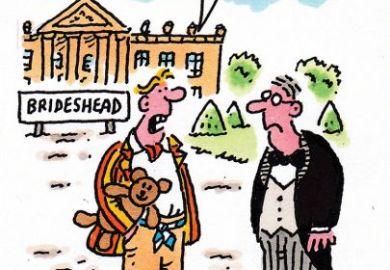
Former Conservative home secretary Amber Rudd branded students at the University of Oxford “rude” and encouraged them to “stop hiding and start engaging” after an appearance she was due to make at the venerable institution was cancelled at the eleventh hour. “In Conversation: Amber Rudd” was organised by UNWomen Oxford to coincide with International Women’s Day. However, the society announced that the talk was cancelled after a vote by the group’s committee. Ms Rudd was at the centre of the Windrush controversy during her time at the Home Office and resigned over her part in the scandal. The Oxford group’s decision reopened the long-running debate over free speech at universities, but the ethnic diversity representative at the Oxford Feminist Society, Safa Sadozai, said that the decision had been “misunderstood”, according to The Guardian. “For an event like International Women’s Day, which is about solidarity, it can’t be that difficult to find someone who has had less of a controversial career,” she said.
A popular satirical TV comedy that lampooned the inner workings of Whitehall is making its return as a play, with a distinctly modern higher education angle. I’m Sorry Prime Minister I Can’t Quite Remember is due to star Sir Simon Callow as former prime minister Jim Hacker, who now finds himself head of a fictional University of Oxford college, The Times reported. However, just like Yes Minister and Yes Prime Minister, nothing is plain sailing and he has to call up his old cabinet secretary Sir Humphrey Appleby – due to be played by Clive Francis – to help him deal with students angered by his politically incorrect approach. Jonathan Lynn, the co-creator of the original hit 1980s series, told the newspaper that the play would explore “what happens to people who have tremendous power and influence…and then have none and when they are old they are forgotten”. So heads of higher education institutions don’t have “tremendous” power and influence? That could bruise a few egos.
A private school principal in Australia has described the decision by a university to lower entry standards for female students who want to study science as “outrageous”, The Australian reported. Kate Hadwen, head of Pymble Ladies’ College, said that the University of Technology Sydney’s plan to allow girls to enter science, technology, engineering and mathematics courses with fewer Australian Tertiary Admissions Rank points than boys was a patronising approach to encourage more women into such disciplines. “The thinking is to try and encourage girls into STEM. But I just think that it’s absolutely saying women need help. We don’t need help. We’re great as we are, thanks very much,” she told an event for International Women’s Day. Whether her reaction had anything to do with the possibility that the change could lead to more state school-educated girls competing for places wasn’t clear.
New Zealanders are usually renowned for their enthusiasm for travel and adventure, but a potential shake-up at the country’s Massey University could be about to test their passion for migration. A document has revealed that the institution is considering winding up science courses at its Auckland campus at the end of the year. This would require science students wishing to continue their face-to-face studies to move south to the university’s Palmerston North campus at the opposite end of New Zealand’s North Island, a relocation of about 250 miles. Ray Geor, pro vice-chancellor of Massey’s College of Sciences, said that considering such changes was “urgent and necessary”, because the college was facing a NZ$15 million (£7.3 million) “contribution shortfall” in 2020.
The University and College Union claims that it has made “significant concessions” on some of its demands in its ongoing dispute with UK universities. General secretary Jo Grady said that the “olive branch”, including a scaled-down demand over pay, could end ongoing strike action. The UCU says that it will accept a 3 per cent pay rise instead of previous demands that factored in inflation and equated to more than 5 per cent. Dr Grady says that negotiators have also indicated they would be willing to shift on pension contributions, another element of the dispute. At the time of going to press, employers – whose pay offer is 1.8 per cent, rising to 3.65 per cent for the lowest paid – said there was no change in their position for the time being. But the changes may kindle hopes of an end to strike action that has seen staff walk out at dozens of universities over the past weeks.
Register to continue
Why register?
- Registration is free and only takes a moment
- Once registered, you can read 3 articles a month
- Sign up for our newsletter
Subscribe
Or subscribe for unlimited access to:
- Unlimited access to news, views, insights & reviews
- Digital editions
- Digital access to THE’s university and college rankings analysis
Already registered or a current subscriber?



